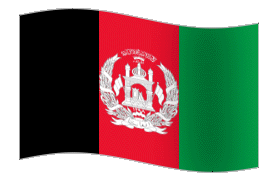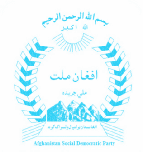Political Transition in Afghanistan
Ajmal Shams
Gulf News (01-
Almost three weeks ago, Afghanistan was witness to historic Presidential Elections
with around 60 percent turnout, much higher than expected, in spite of constant security
threats from the insurgents. A high level of enthusiasm among Afghan voters reflects
the desire for change and hope for a better future. There is still a long way to
go before the next president takes office. As per preliminary results (announced
on April 26), Dr. Abdullah Abdullah and Dr. Ashraf Ghani have emerged as the two
top candidates with the former in the lead. As anticipated none managed to gain the
requisite 50 percent plus one to win the race. All the remaining six presidential
hopefuls are virtually out of the race. The Independent Afghanistan Election Commission
(AEC) has yet to announce final results on 14 May 2014. However, all indications
are that the two leading candidates will have to face a run-
We are yet to know who the winner of the election 2014 will be. One winner of this election stands out though and it is none other than the entire Afghan nation that went to polls with courage, dignity and an enduring faith in democracy. No incidents among supporters of rival candidates were reported on the election day exhibiting a gradually maturing democratic culture in a country ravaged by decades of civil war, conflict and political instability. One could say with full confidence that Afghans have set a good precedent of being a responsible nation by rising to the occasion. Our national security forces also did a brilliant job by taking necessary measures that ensured relatively peaceful election. Live TV debates, huge election rallies, city walls full of posters and banners in every corner together with an extensive coverage of TV campaign commercials kept this election season quite exciting with a sense of optimism and hope.
The Complaints Commission, in coordination with the AEC, will undertake an assessment
of the complaints from all contenders regarding accusations of vote frauds by rival
candidates in different parts of the country. The final results will officially declare
if there has to be a run-
It is important to note why Abdullah might not be happy about going into the second
round. The dynamics of Afghan politics are such that a run-
Unlike the previous two elections of 2004 and 2009 where Karzai, himself a sitting
president, had clear edge over his rivals because of having control over the entire
state machinery and had managed to form winning coalitions, this election is about
transfer of power from Karzai to a new-
Abdullah has had a long-
Not being a stable democracy with well-
(Courtesy: Gulf News -
The writer is President of the Afghanistan Social Democratic Party better known as Afghan Millat National Progressive Party and is based in Kabul, Afghanistan. He served as Policy Advisor to President Dr. Ashraf Ghani when he chaired the security transition commission. He mainly writes on political and developmental issues. He has published in the News International, the Gulf News, the Asia times, South Asia Magazine and several other national and international journals.
دافغان ملت ملي مترقي ګوند

Afghanistan Social Democratic Party

Copyright © Afghan Millat 2007-